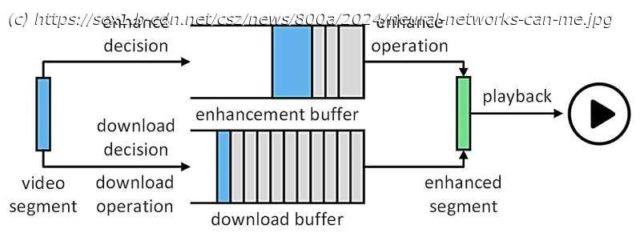Application data requirements vs. available network bandwidth have been the ongoing Battle of the Information Age, but now it appears that a truce is within reach, based on new research from NJIT Associate Professor Jacob .
Application data requirements vs. available network bandwidth have been the ongoing Battle of the Information Age, but now it appears that a truce is within reach, based on new research from NJIT Associate Professor Jacob Chakareski.
Chakareski and his team, collaborating with peers from the University of Massachusetts-Amherst, devised a system to make network requests err on the side of smallness and upscale the difference through a neural network running on the receiving hardware.
They call it BONES—Buffer Occupancy-based Neural-Enhanced Streaming—which will be presented at the ACM Sigmetrics conference in Venice, Italy this summer, where only about 10% of submitted papers are accepted.
„Accessing high-quality video content can be challenging due to insufficient and unstable network bandwidth … neural enhancement has shown promising results in improving the quality of degraded videos through deep learning,“ they stated.
Start
United States
USA — software Neural networks can mediate between download size and quality, according to researcher






